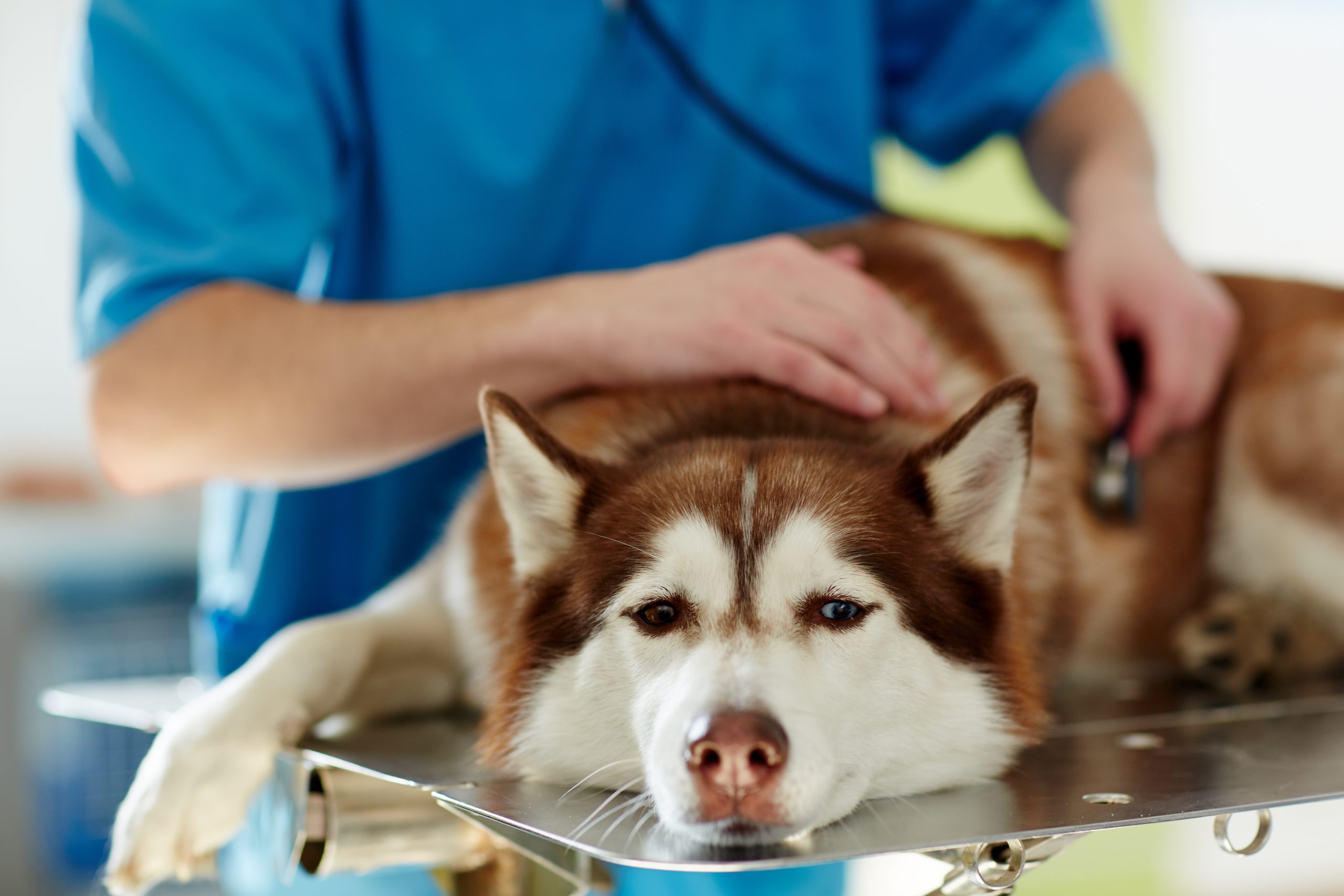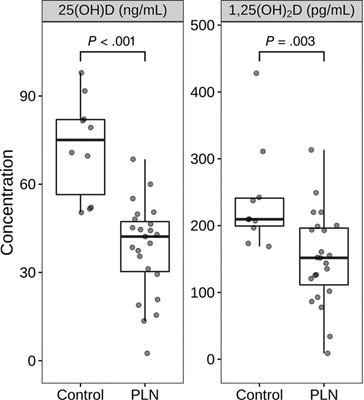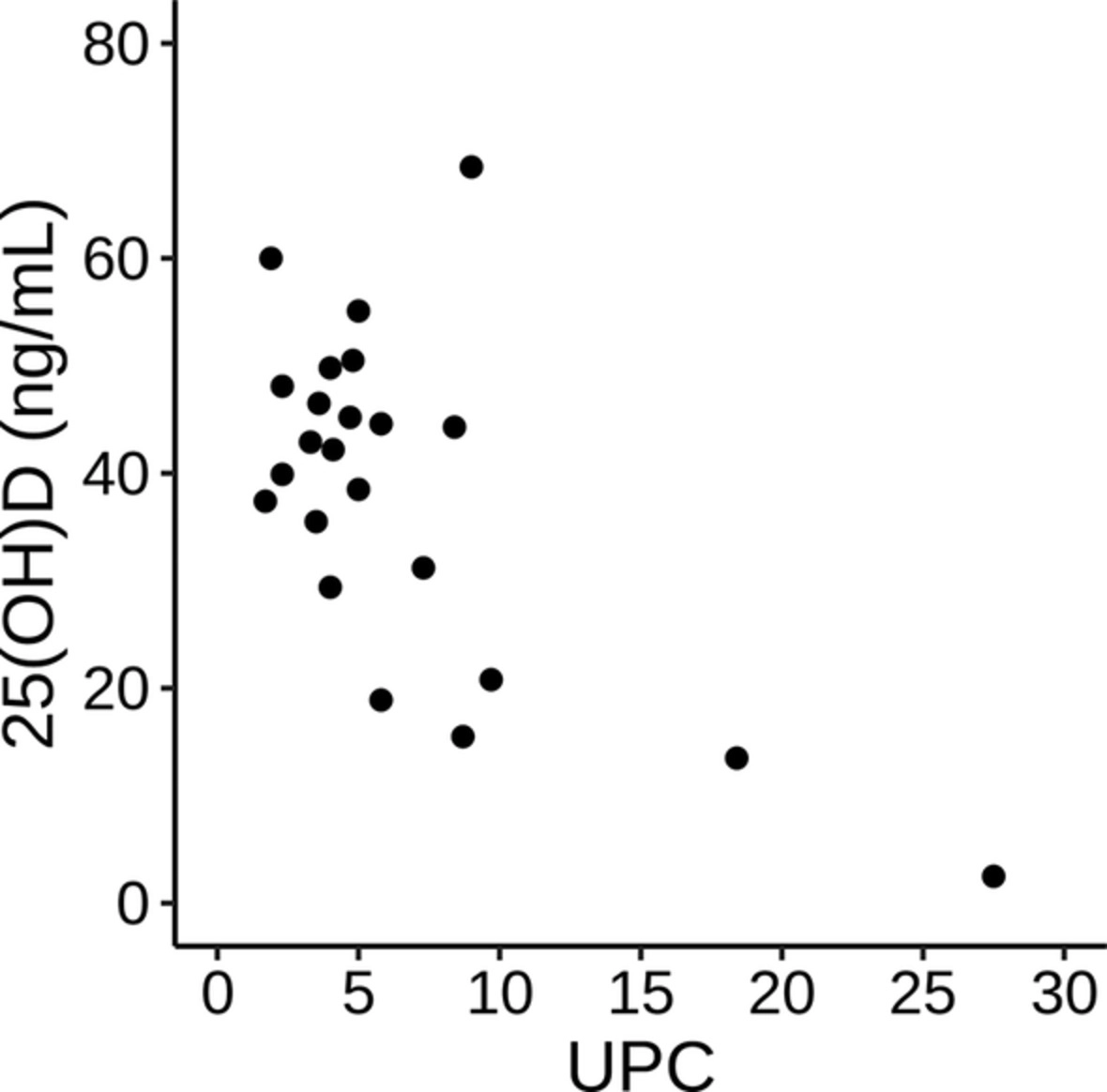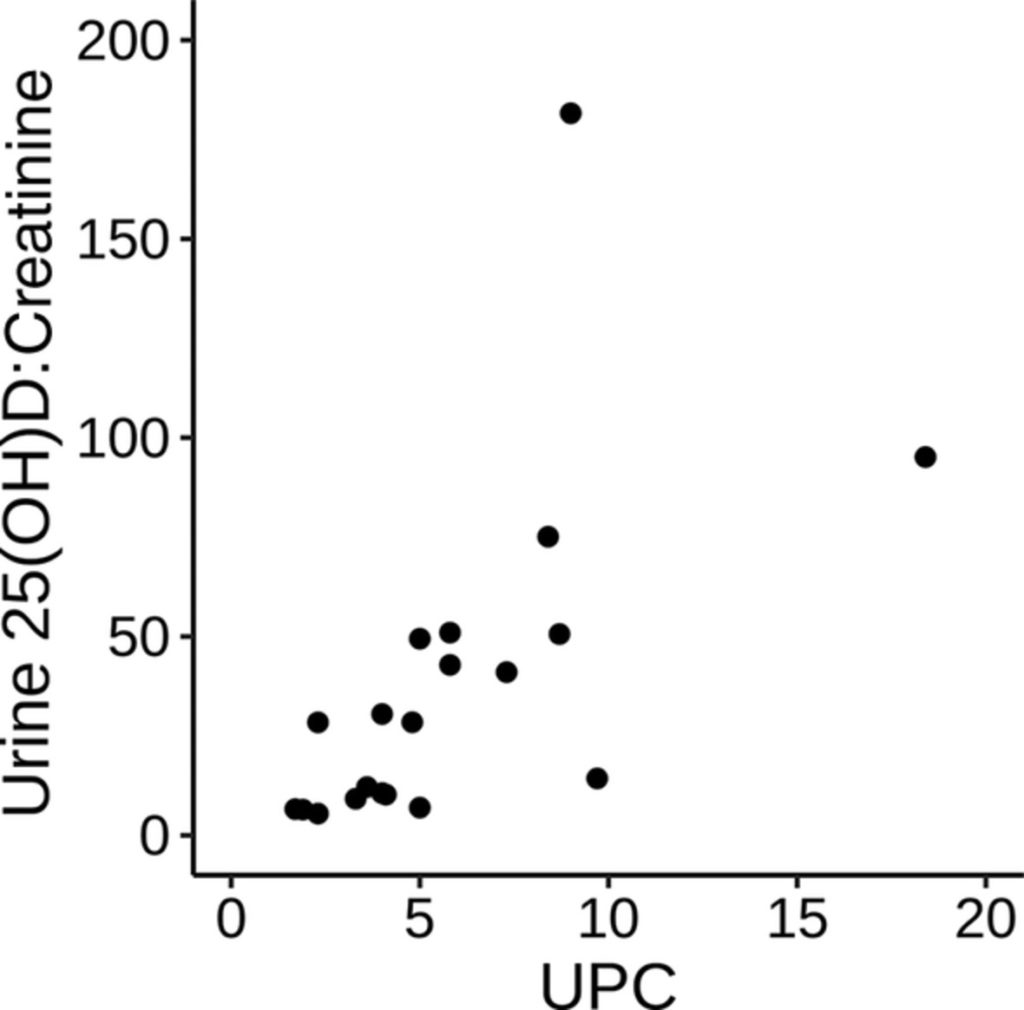
Background
Protein-losing syndromes, specifically protein-losing enteropathy (PLE) and protein-losing nephropathy (PLN), are disease conditions when albumin and other protein-rich materials leak into the intestinal cavity or urine. Left untreated, there is a high mortality. Both PLE and PLN involve significant inflammation which is a part of the pathogenesis and treatment often includes the use of corticosteroids. A common finding in all protein-losing conditions is a very low Vitamin D level (1-5). Low stores of Vitamin D have been implicated in the initiation of these diseases and if Vitamin D remains low, prognosis is poor. Aggressive D3 supplementation can increase serum 25(OH)D levels and can aid in the regulation of the inflammatory response.
Featured Study
To evaluate the effect proteinuria has on Vitamin D metabolites, a cohort of PLN dogs were studied for Vitamin D metabolites (25(OH)D, 24,25(OH)D, calcitriol), vitamin D binding protein (VDBP), and urine levels of 25(OH)D (6). Study findings showed:
- Significant decrease in all serum vitamin D metabolites.
- Decreasing levels of serum 25(OH)D as urinary protein concentration increased (UPC).
- Urinary 25(OH)D/creatinine increased as UPC increased.
- Serum VDBP decreased as UPC increased and increased as serum albumin levels increased.
Conclusion
The protein losing nature of PLN takes with it all the vitamin D metabolites with patient’s 25(OH)D falling into the deficiency level at 40ng/mL. Patients with 25(OH)D below 25ng/mL correlate to stage 4 CKD (4) and efforts should be made to raise levels. Due to nature of these diseases, it may be difficult to achieve sufficiency. Aggressive D3 supplementation will help to increase Vitamin D levels and aid in the regulation of the inflammatory response.
References:
- Gow AG, Else R, Evans H, Berry JL, Herrtage ME, Mellanby RJ. Hypovitaminosis D in dogs with inflammatory bowel disease and hypoalbuminaemia. J Small Anim Pract. 2011 Aug;52(8):411-8. doi: 10.1111/j.1748-5827.2011.01082.
- Titmarsh H, Gow AG, Kilpatrick S, Sinclair J, Hill T, Milne E, Philbey A, Berry J, Handel I, Mellanby RJ. Association of Vitamin D Status and Clinical Outcome in Dogs with a Chronic Enteropathy. J Vet Intern Med. 2015 Nov-Dec;29(6):1473-8. doi: 10.1111/jvim.13603.
- Titmarsh HF, Gow AG, Kilpatrick S, Cartwright JA, Milne EM, Philbey AW, Berry J, Handel I, Mellanby RJ. Low Vitamin D Status Is Associated with Systemic and Gastrointestinal Inflammation in Dogs with a Chronic Enteropathy. PLoS One. 2015 Sep 2;10(9):e0137377. doi: 10.1371/journal.pone.0137377.
- Parker VJ, Harjes LM, Dembek K, Young GS, Chew DJ, Toribio RE. Association of Vitamin D Metabolites with Parathyroid Hormone, Fibroblast Growth Factor-23, Calcium, and Phosphorus in Dogs with Various Stages of Chronic Kidney Disease. J Vet Intern Med. 2017 May;31(3):791-798. doi: 10.1111/jvim.14653.
- Allenspach K, Rizzo J, Jergens AE, Chang YM. Hypovitaminosis D is associated with negative outcome in dogs with protein losing enteropathy: a retrospective study of 43 cases. BMC Vet Res. 2017 Apr 8;13(1):96. doi: 10.1186/s12917-017-1022-7.
- Miller MS, Rudinsky AJ, Klamer BG, Chew DJ, Parker VJ. Association between vitamin D metabolites, vitamin D binding protein, and proteinuria in dogs. J Vet Intern Med. 2020 Nov;34(6):2468-2477. doi: 10.1111/jvim.15912.



